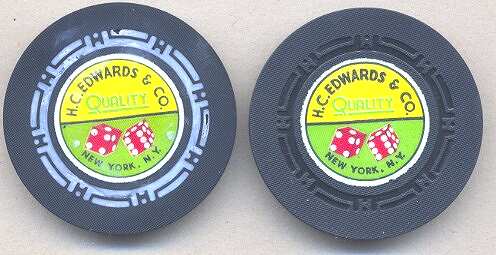|
|
|

By Paul Hoffman
Sunday, November 18, 2007; Page B02
I don't know if that link will work. Maybe you have to be registered with the Washington Post to read it.
Here is the whole article:
DEPT. OF GAMBITS
Winning by Rook or by Crook
By Paul Hoffman
Sunday, November 18, 2007; Page B02
It's been a banner year for cheating scandals in sports. In baseball, allegations of steroid use and a federal indictment on charges of lying to a grand jury tainted Barry Bonds's record-breaking 756 home runs. In football, the New England Patriots got caught videotaping the defensive signals of the New York Jets. In cycling, the Tour de France became the Tour de Pharmacie when officials stripped Floyd Landis of the 2006 title after he tested positive for elevated levels of testosterone. In Formula One racing, the leading team, McLaren Mercedes, was fined a bracing $100 million for stealing confidential technical specifications about rival Ferrari.
I'm not much of a sports fan, so my couch-potato juices started flowing only when the cheating epidemic spread to chess. I've been playing since I was 5 years old and have spent untold hours practicing sequences of moves such as the Fried Liver Attack and the King's Gambit Accepted. Chess, I'd always thought, is an ennobling cerebral contest between two determined players armed only with their intellect and free of all drugs, except perhaps caffeine.
So you can understand my chagrin when Azerbaijani adults attending the European Union children's championship last month accused the 8-year-old Russian winner of receiving illicit help from a third party during the game. Tournament organizers ultimately rejected the allegations and berated the adults for smearing the child's good name.
But his was not the only indignity the royal game endured recently. The gentlemen's-club respectability that chess once enjoyed was flushed away last autumn at the 2006 World Chess Championship when Bulgarian contender Veselin Topalov accused the reigning champion, Vladimir Kramnik, of making a suspicious 50 trips to the bathroom during a single game. The implication: that Kramnik was secretly consulting chess-playing software on a Palm Pilot or talking on his cellphone to a confederate armed with a chess computer. Officials hastily boarded up his private loo. "I had to go to the bathroom urgently," Kramnik said later. "I asked the arbiter to open my toilet. He just shrugged and offered me an empty coffee cup."
The charges looked too much like an underhanded attempt by Topalov to rattle the taciturn Kramnik, who was forced to explain his hydration and evacuation habits to a prying press corps, and the International Chess Federation ultimately decided that they were spurious. Nonetheless, organizers of future tournaments are now debating whether they should herd grandmasters -- the black belts of the chessboard -- through metal detectors and all but strip-search them before a match. Already, playing halls have been bombarded with electromagnetic signals to jam secret wireless communications.
ad_icon
Overkill? Not really. At the 2006 World Open in Philadelphia, the biggest annual amateur chess event in the United States, a player was caught with a concealed wireless earpiece. And the 2007 World Open reportedly had its own problems involving the use of body doubles, when a weaker player entered a competition for players of similar skill but had a much stronger look-alike sit in for him.
Trickery and deception are nothing new in chess. In the 1400s, Lu¿s Ram¿rez de Lucena recommended positioning the board so that light would shine in the opponent's eyes. "Also," de Lucena advised, "try to play your adversary when he has just eaten and drunk freely."
In the pressure-cooker environment of world championships, where the most prestige (and cash) is at stake, players have done much worse. In 1978, world champion Anatoly Karpov employed a sketchy-looking "parapsychologist" to sit in the audience and "hex" challenger Viktor Korchnoi. Not to be outdone, Korchnoi hired two saffron-robed mystics, Didi and Dada, both convicted of attempted murder, to meditate distractingly in the front row.
Many players routinely use more modest means of unnerving their opponents, from banging the pieces and glaring menacingly to chewing with their mouths open and rocking maniacally in their chairs. It is against the rules to purposely distract an opponent, but who is to say that a coughing player doesn't really have a cold or a fidgety opponent an uncontrollable nervous tic?
Benjamin Franklin objected to all of this. "If your adversary is long in playing, you ought not to hurry him, or express any uneasiness at his delay; not even by looking at your watch, or taking up a book to read," he wrote in a classic essay on the morality of chess. "You should not sing, nor whistle, nor make a tapping with your feet on the floor, or with your fingers on the table, nor do anything that may distract his attention."
Wood-pushers are happy to claim the illustrious Franklin as one of their own, but they almost universally ignore his plea for gentlemanly behavior. In 1972, the Brazilian star Henrique Mecking faced former world champion Tigran Petrosian at a tournament in San Antonio. Mecking said that the Soviet grandmaster "was only quiet when it was his turn to move. All the time I was thinking he was kicking the table and elbowing the board to make it shake. If this was not enough to upset me, Petrosian kept making noises, stirring his cup of coffee, all the time varying the rhythm. And rolling a coin across the table."
Mecking retaliated by making some noise of his own, but Petrosian calmly turned off his hearing aid and crushed him.
Robert

|
|